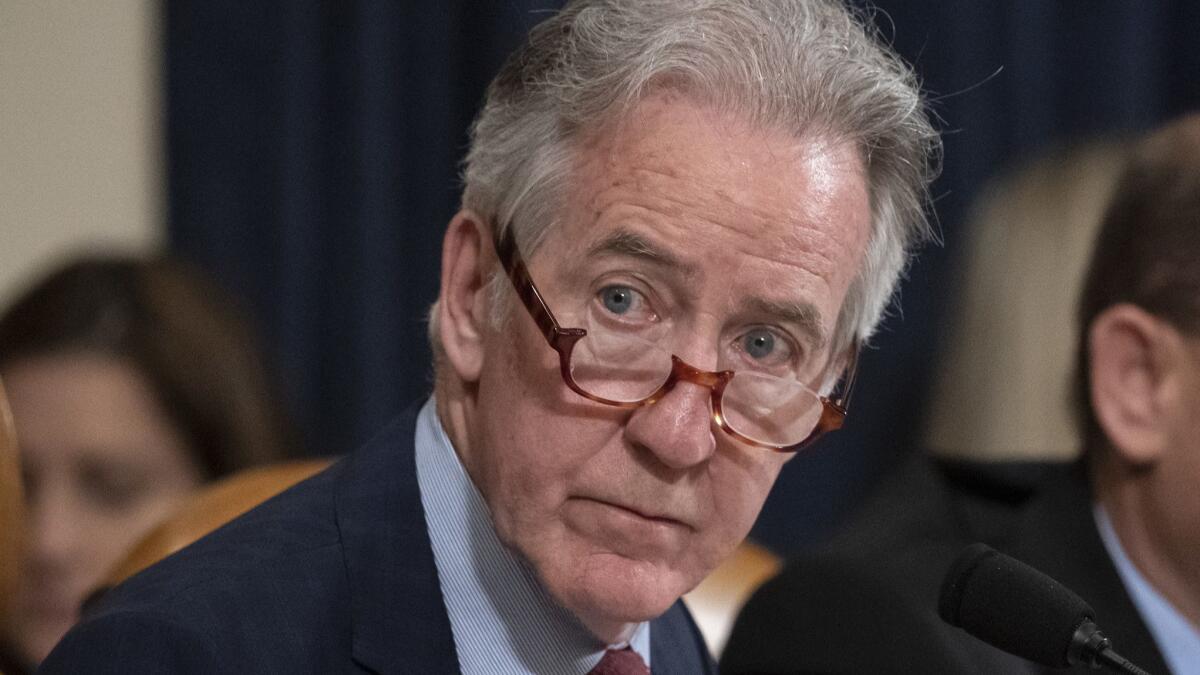House passes a bill to improve retirement security and ease IRA rules

The U.S. House of Representatives has overwhelmingly approved legislation that relaxes the rules for retirement savers and makes it easier for small businesses and other companies to offer retirement plans.
The bipartisan bill, approved 417-3, also makes it easier for workers to transfer retirement plans when they change jobs and allows part-time workers to save for retirement. The measure also fixes a provision of the 2017 tax cut law that inadvertently raised taxes on benefits received by family members of deceased military veterans.
Rep. Richard Neal (D-Mass.), chairman of the tax-writing House Ways and Means Committee, called the bill the most significant retirement legislation in 15 years. With Thursday’s vote, “the House made significant progress in fixing our nation’s retirement crisis and helping workers of all ages save for their futures,” he said.
“Too many people find it difficult to save for retirement. Many don’t have retirement plans at all,” Neal said.
A report last year by the nonprofit Center for Financial Services Innovation said four in 10 adults have not saved for their retirement.
The bill delays until 72 the age at which retirees must start withdrawing from individual retirement accounts and removes the age limit at which taxpayers must stop contributing. Now, taxpayers have to stop contributing to such accounts at age 70½ and begin taking distributions.
The bill now goes to the Senate. Republican Chuck Grassley of Iowa, chairman of the Senate Finance Committee, predicted quick passage, which would make it one of the few pieces of legislation this year that might be approved by the Senate and signed into law.
In addition to increasing the age limit for required minimum distributions, the bill also makes it easier for companies to unite and form joint retirement plans, and attempts to incentivize the creation of such plans for part-time workers and small businesses.
Retirement policy has long been a priority for Neal, who took control of the tax-writing committee this year. Neal has said Thursday’s bill won’t be the last time he tries to work with Rep. Kevin Brady of Texas, the senior Republican on the committee, to modify the retirement system.
An amendment recently added to the bill reverses an error in the 2017 tax law that had caused military families known as “Gold Star” families to owe much higher taxes on survivor benefits.
House Speaker Nancy Pelosi said she was glad the bill would remove an unintended tax increase imposed on military families. Lawmakers from both parties wanted to change the provision after discovering it was included in the 2017 tax law.
“It is outrageous and unacceptable that children who have survived so much are now forced to pay thousands of additional dollars in taxes on their benefits,” said Pelosi (D-San Francisco).
Known as the Setting Every Community Up for Retirement Enhancement Act, or SECURE Act, the bill makes long-planned changes supported by both parties. Rep. Mike Kelly (R-Pa.) said the measure will “help future retirees prepare for the golden years and make it easier for businesses to help in that effort.”
To attain financial security in retirement, workers must start investing and saving as early as possible, Kelly and other lawmakers said.
AARP, the nation’s largest advocacy group for Americans 50 and older, said the bill will improve retirement savings for tens of millions of older workers.
AARP hailed the provision allowing part-time workers to gain access to an employer’s retirement savings plan. The measure will help older workers and caregivers who shift from full-time work to part-time status or return to the workforce on a part-time basis, the group said.
The bill’s repeal of a maximum age for those making contributions to individual retirement accounts and a provision allowing seniors to delay distribution of retirement savings until age 72 are intended to accommodate a growing number of workers who choose to postpone retirement.
Republicans complained that majority Democrats removed a provision that would have expanded education savings accounts known as 529 plans to cover costs associated with home schooling. A “substantial number” of Democrats objected to the idea, Neal said. The idea also was opposed by teachers unions.
Brady said removing the provision was neither pro-education nor pro-child.
“What do have to fear from parents who want to help their kids and use their own money to do it?” Brady asked. “I’m terribly disappointed.”
The bill also would exempt from taxation benefits that volunteer firefighters and emergency medical services personnel receive from their communities.
“This tax benefit is the least we can do to repay the brave men and women who put their lives on the line to protect and save others in their communities every single time they respond to a call,” said Rep. John Larson (D-Conn.), who pushed for the provision.
More to Read
Inside the business of entertainment
The Wide Shot brings you news, analysis and insights on everything from streaming wars to production — and what it all means for the future.
You may occasionally receive promotional content from the Los Angeles Times.










